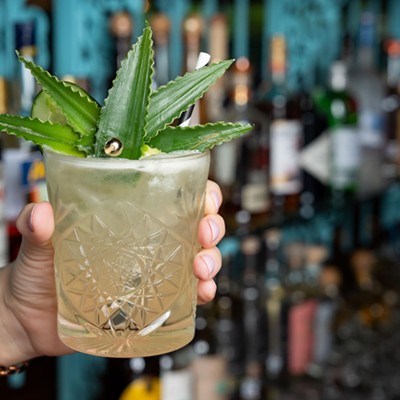The saying goes, “You only get one chance to make a first impression,” and this is especially true for restaurants. While success can easily be determined for concepts like Torchy’s Tacos, Shake Shack and Hopdoddy’s, which all have consistently long lines, for most restaurants, it can take a much longer time to realize whether the public has accepted them.
Unfortunately, if your concept is not embraced by the community and, as a result, is not reaching your sales goals, it is usually a very expensive and difficult process to revise your menu, re-brand or change concepts entirely. A failure to make the necessary adjustments while a restaurant is on the path of declining sales may ultimately lead to its demise.
Añejo was opened in March 2015 by Jerry Lasco of The Tasting Room & Max’s Wine Dive fame, and its “high-end Tex-Mex” has not had the same impact as Lasco’s other ventures. He assumed that just by building Añejo and doing nothing more, he could persuade people to get the concept. “I was focused on getting it open and did not have the time to get the story out there, get feedback and make changes,” says Lasco. “Añejo was the high-end option for Tex-Mex, and the feedback was that Houston did not want that.” There was also confusion over what kind of concept Añejo was supposed to be. Was it a steakhouse? Was it just a fancy Mexican restaurant? Would people pay more for higher-quality ingredients even though the food was still essentially Tex-Mex? After more than a year of operations and inconsistent reviews, including an unflattering one from former Houston Press Food Editor Phaedra Cook, one thing was perfectly clear: If Añejo is going to survive, it must clarify and improve its concept.
The real inspiration behind Añejo was born from Lasco's spending years living on the border and traveling through the interior of Mexico, including Mexico City and Monterrey. He fell in love with the culture and food, along with the quality of the tequila and mezcal. To truly capture this spirit, Añejo would need to see adjustments on both the food and the beverage side. Añejo, which translates to “aged” in Spanish, has a strong tequila and mezcal program, with 75 tequilas (all 100 percent blue agave) and 25 hard-to-find mezcals, but a tequila expert was hired to help drive education and service, both internally and externally. But potentially the most important element of Añejo’s reinvention was a shift away from Tex-Mex and toward more traditional flavors of regional Mexican cuisine, with classic and contemporary interpretations. To accomplish this, Lasco hired executive chef Alberto Gutierrez in February 2016.
Chef Alberto was born in San Antonio but raised in Laredo. He spent seven years at La Posada Hotel — the only Four Diamond hotel in Laredo — and four years at the renowned Driskill Grill in the Driskill Hotel in Austin. It was this particular experience, during which he worked under James Beard nominee and executive chef David Bull, that he considers to be his formal culinary training. He moved to Houston earlier this year to be closer to his wife’s family.
Alberto considers his specialty to be northern Mexican cuisine, which is characterized by bold flavors and spices and the use of mesquite grills. He incorporates southern French and Italian cooking techniques in creating this cuisine, techniques he learned while working at the Driskill. As a result, Alberto is known for infusing his mole with red wine and searing it with duck fat.
He admits that while Añejo has potential, there were many factors that prevented customers from truly embracing the initial concept. “Tex-Mex refers to a certain type of restaurant, and we were marketing ourselves as high-end Tex-Mex while executing an upscale Mexican steakhouse,” says Alberto. “There was certainly a disconnect and confusion on the concept, and it was a bit too stuffy before.”
To make the transition successful, Alberto has focused on strengthening the kitchen team’s Mexican cooking techniques and educating them on the proper sensory indicators needed to properly execute. “Mexican cooking is a very aromatic, visual cuisine,” he says. “Mexican rice has a certain red color to it and needs to be toasted golden brown before you add stock to it. When you mix tortillas, there is a certain feel when you know it's ready.”
Changes to the menu include the addition of composed plates, quesadillas and street tacos to make Añejo more approachable and relaxed. By getting better food costs and replacing some of the more expensive ingredients, Añejo has been able to lower the price on several items. Alberto now recommends the fajitas because of the mesquite grill, and claims the enchiladas are more authentic than before because they are made with more cheese and more sauces such as mole and poblano crema.
Additional cosmetic revisions to Añejo, such as repainting the bar and incorporating more Mexican artwork, continue the push to make the restaurant more accessible while paying homage to Mexico’s culture. Pricing on several wines and cocktails on the happy hour menu has been reduced, and more tequila-focused cocktails and margaritas have been added to the drink menu.
Will these changes be enough for Houstonians to finally embrace Añejo? It's too early to tell, but recent acknowledgments show that Añejo is on the right path. Alberto’s smoked beef tongue taco recently won both “People’s Choice” and “Most Interesting Taco” at the Houston Press’s 2nd Annual Tacolandia festival. In addition, his mesquite grilled lamb chop with risotto and mole won “Best Culinary Creation” at the March of Dimes Signature Chef’s Gala in November.






